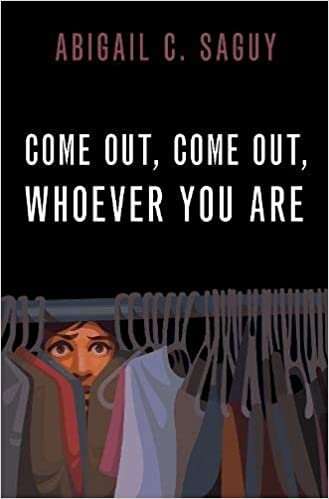#To better understand identity, sociologist’s work expands definition of ‘coming out’

“#To better understand identity, sociologist’s work expands definition of ‘coming out’”

Sociologist Abigail Saguy’s scholarship has focused on understanding and articulating how our culture frames identity, and human vulnerabilities.
Her most-recent book, “Come Out, Come Out, Whoever You Are,” (Oxford University Press, 2020) examines how the approach to “coming out” in the LGBTQ community has also led to a “coming out” process and vernacular for other elements of personal and political identities—from undocumented immigrant youth to fat acceptance activists to the #MeToo movement.
“I have long been interested in how the stories we tell ourselves shape our experiences and how oppressed groups are sometimes able to gain freedom by finding new ways to understand or ‘frame’ their lives,” said Saguy, who has been teaching at UCLA for 20 years and since July 2020 has been chair of the sociology department.
Saguy’s scholarship has never been more urgent. Just in the past few weeks—since Women’s History Month began—two major media moments have once again exposed the deeply engrained struggles that many women face. In Meghan Markle’s and Prince Harry’s interview with Oprah Winfrey and the “Allen v. Farrow” documentary series, Markle and Dylan Farrow share their personal experiences with traumas that women have endured for centuries. To Saguy, the way these particular women chose to articulate those experiences, shows how we’re seeing “coming out” processes adapt and evolve to fit different circumstances.
Markle and Harry spoke openly about issues that are often closeted, like mental illness and racism. Decades ago, Princess Diana gave a candid interview, in which she shared her own battles with mental illness, which functioned as a similar kind of “coming out,” Saguy said.
“We know that the interview with Princess Diana encouraged others to be more open about their own experiences with mental illness, and I expect the interview with Meghan and Harry will ensure that this trend continues,” Saguy said. “Meghan and Harry’s discussion of racism within the royal family and British society at large is part of a larger reckoning we are currently having. It is both made possible by this moment and will, I expect, encourage more discussions and soul searching.”
In the case of Dylan Farrow’s allegations of sexual abuse against her adoptive father, director Woody Allen, her brother Ronan Farrow’s investigative reporting played an important role in the #MeToo movement.
“His reporting on Woody Allen’s alleged abuse of Dylan Farrow constituted a high-profile ‘outing’ of Allen as a sexual abuser,” Saguy said. “Ronan Farrow’s and others like Megan Twohey’s reporting also encouraged other women to ‘come out’ about their experiences of abuse and, in some cases, to ‘out’ their abusers.”
The seeds of “Come Out, Come Out, Whoever You Are” were planted 20 years ago when Saguy was researching her book “What’s Wrong with Fat?” In that book, she tackles the societal structures around fat stigma, tracing its roots through classism and racism.
Saguy read hundreds of scientific studies about fatness and obesity. She interviewed scores of body acceptance advocates. Many of them described themselves as “coming out” as fat, claiming the word and their bodies back from how others view them.
“Bodies are real and material, but how we make sense of them is socially constructed,” said Saguy. “It’s just so taken for granted that it’s some kind of moral accomplishment to be thin and maintain a thin body.”
Saguy points to “Fearing the Black Body: The Racial Origins of Fat Phobia” by Sabrina Strings as a powerful example of how the “cult of thinness” (a term Saguy uses in “What’s Wrong with Fat?”) serves as a means of differentiating Black and white bodies—and denigrating Black bodies.
“It’s also a civil rights issue, and some of our focus has to be on the fact that solution is not make heavy people thin, but make bigoted people less bigoted,” she said.
As she worked on “Come Out, Come Out, Whoever You Are,” Saguy found another powerful lens through which to view the issues our society faces. People “coming out” as gay, fat undocumented, or as survivors of sexual harassment or abuse, or with their struggles around mental illness, are rejecting the shame that society has historically said they should feel, Saguy said.
“Shame is never going to be helpful and is never going to get us to a better place,” she said. “Starting with acceptance and love is the best place to start and then you can go somewhere positive.”
Citation:
To better understand identity, sociologist’s work expands definition of ‘coming out’ (2021, March 30)
retrieved 30 March 2021
from https://phys.org/news/2021-03-identity-sociologist-definition.html
This document is subject to copyright. Apart from any fair dealing for the purpose of private study or research, no
part may be reproduced without the written permission. The content is provided for information purposes only.
If you liked the article, do not forget to share it with your friends. Follow us on Google News too, click on the star and choose us from your favorites.
For forums sites go to Forum.BuradaBiliyorum.Com
If you want to read more Like this articles, you can visit our Science category.


